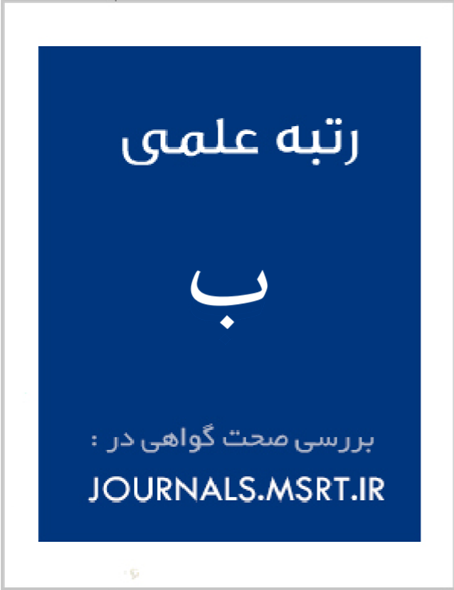شناسایی عناصر معرفتی مؤثر بر بازسازی اخلاقی در تجربه توبه با رویکرد تحلیل محتوایی
کلمات کلیدی:
توبه, بازسازی اخلاقی, عناصر معرفتی, تحلیل محتوای کیفی, هویت اخلاقی, منابع دینیچکیده
هدف پژوهش حاضر، شناسایی عناصر معرفتی مؤثر بر بازسازی اخلاقی در تجربه توبه با استفاده از رویکرد تحلیل محتوایی است. این پژوهش به روش کیفی و با رویکرد تحلیل محتوای قراردادی انجام شد. مشارکتکنندگان شامل ۲۴ فرد بزرگسال ساکن تهران بودند که تجربهای عمیق و تأملبرانگیز از توبه را پشت سر گذاشته بودند. دادهها از طریق مصاحبههای نیمهساختیافته گردآوری شد و تحلیل دادهها با استفاده از نرمافزار NVivo صورت گرفت. نمونهگیری بهصورت هدفمند و تا رسیدن به اشباع نظری ادامه یافت. یافتههای پژوهش در سه مقوله اصلی طبقهبندی شدند: ۱) بیداری معرفتی در نقطه توبه، شامل مؤلفههایی چون درک بحران معنایی، خودآگاهی اخلاقی، و بازاندیشی در ارزشها؛ ۲) بازسازی هویت اخلاقی، شامل ندامت سازنده، آشتی با گذشته، و شکلگیری روایت اخلاقی جدید؛ و ۳) تعامل معرفتی با منابع اخلاقی، شامل بهرهگیری از متون دینی، گفتوگوهای اخلاقی، و مواجهه با الگوهای دینی. این مضامین نشاندهنده نقشی بنیادین برای عناصر شناختی و تأملمحور در فرآیند بازسازی اخلاقی پس از توبه است. تجربه توبه، نه صرفاً یک بازگشت احساسی، بلکه فرآیندی معرفتی، عقلانی و معنوی است که از طریق بازاندیشی اخلاقی، تعامل فعال با منابع دینی، و بازسازی شناختی هویت، به تحول اخلاقی منجر میشود. یافتهها میتوانند به طراحی مداخلات معنوی و روانشناختی مبتنی بر دین در حوزه بازسازی اخلاقی کمک نمایند.



